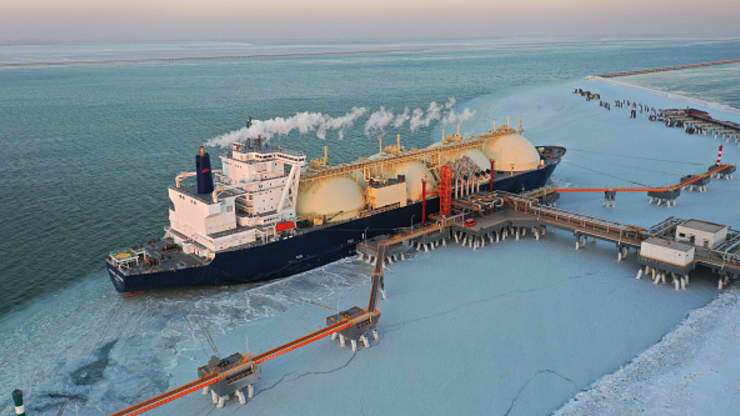Natural gas prices in Asia hit a record high last week and will likely go down from here, according to political risk consultancy Eurasia Group.
“We’ve heard single cargos indeed sell in the high $30s, I heard one at $39 [per million British thermal units],” said Henning Gloystein, director of energy, climate and resources at Eurasia. That level seems like the “high mark” for prices and the peak, he said.
According to S&P Global Platts, the benchmark Japan-Korea-Marker (JKM) spot price for liquefied natural gas in February reached a record high of $32.49 MMBtu last week. Natural gas demand for heating soared after a cold spell gripped North Asia, the report said.
The jump in prices has been “pretty extreme,” but won’t last much longer as the cold season is ending and demand for heating will fall, Gloystein told CNBC’s “Squawk Box Asia” on Monday.
“At some point, of course, it will get a little bit warmer,” he said. “Prices for February and March will probably come down because … the winter will end for sure.”
“This is probably the peak of the spike,” he added.
Natural gas prices in Asia fell to a record low in the second quarter of last year when the coronavirus crisis spread, but they have surged more than 1,000% since July.
Gloystein said the cold weather and some supply outages have played a part in that surge, but one “big overlooked factor” is the vast number of households in China that switched from coal to natural gas last year.
More than 10 million households in China were estimated to have moved from coal to natural gas for heating their homes, he said. The majority of those transitions happened in the last quarter of 2020, just before winter arrived, he said.
“Then it did get really cold, and suddenly they had to serve all this new demand which, by some estimates, it will be the equivalent of moving all of Australia’s households to another fuel within a single year,” Gloystein said.
Utilities and energy companies did not have enough storage to prepare for such a big increase in demand, he added. As a result, demand outstripped supply and drove prices to a record high.
Gloystein said companies usually build up storage during the summer and use it up in the winter, topping up as needed. This time, however, China suddenly had to purchase more gas for new customers at “literally whatever price, and no one was prepared for that in the market.”
Still, the trend of switching away from coal to gas will likely continue, he added.
“This gasification program and the move to cleaner fuels in China will remain in place, without a doubt,” he said.
Latest Stories
-
Hohoe Ghana Blind Union organises training for members ahead of Election 2024
4 mins -
Alan Kyerematen reveals his future plans for Ghanaian Health professionals
5 mins -
AAIN empowers women and small enterprises in Upper East Region through SHINE project
6 mins -
Akufo-Addo leads nationwide commissioning of 80 educational projects
12 mins -
Ghana and Seychelles strengthen bilateral ties with focus on key sectors
43 mins -
National Elections Security Taskforce meets political party heads ahead of December elections
46 mins -
Samsung’s AI-powered innovations honored by Consumer Technology Association
1 hour -
Fugitive Zambian MP arrested in Zimbabwe – minister
1 hour -
Town council in Canada at standstill over refusal to take King’s oath
2 hours -
Trump picks Pam Bondi as attorney general after Matt Gaetz withdraws
2 hours -
Providing quality seeds to farmers is first step towards achieving food security in Ghana
2 hours -
Thousands of PayPal customers report brief outage
2 hours -
Gary Gensler to leave role as SEC chairman
2 hours -
Contraceptive pills recalled in South Africa after mix-up
2 hours -
Patient sues Algerian author over claims he used her in novel
3 hours

